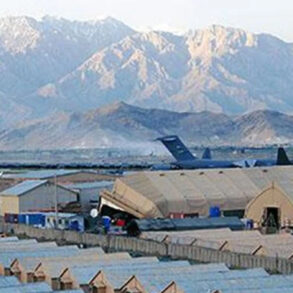Gov. Kay Ivey has signed into law a bill to prohibit the governments of China, Iran, North Korea, and Russia from purchasing certain property in the state.
The bill, called the Alabama Property Protection Act, drew strong opposition from Chinese Americans living in Alabama after it passed the House. The bill initially banned Chinese citizens, including those living and working in Alabama, from buying property in the state. Opponents of the bill overflowed a committee room at a public hearing. They said the bill was a baseless attack on Chinese immigrants who work in Alabama in education, medical care, research and other fields, raise their families here, and contribute to their communities in multiple ways.
The Senate changed the bill and passed it on a vote of 26-7, with Republican support and opposition from most Democrats. The House concurred with the changes, sending the bill to Ivey last week. The governor signed it Wednesday.
The bill will prohibit “foreign principals of concern” from buying property used for agriculture or forestry or property that is within 10 miles of military installations and other critical infrastructure, which includes airports, seaports, power plants, water and wastewater treatment plants, gas terminals, and certain other facilities. “Foreign principals of concern” are identified as the governments, government officials, political parties, and political party members of the “foreign countries of concern,” which are listed in the bill as China, Iran, North Korea, and Russia. “Foreign principals of concern” also include any country or government on the sanctions list of the U.S. Treasury Department’s Office of Foreign Asset Control.
Ivey’s office issued a statement about the bill.
“Across the United States, we have seen alarming instances of foreign entities purchasing large tracts of land, which could have severe consequences for our country’s national defense and economy, if no action is taken,” Ivey said. “From our forests to our farmland, Alabama is blessed with an abundance of highly valuable natural resources that must be protected. We also have a large military presence, and Alabama will always do our part to put the security of our country and our people first. The simple fact of the matter is that foreign governments have no business owning land in Alabama, and I am proud to sign this bill and ensure that will never be the case going forward.”
Although the Senate changed the House version of the bill that targeted individuals, concerns from the Chinese American community and others remain. Opponents of the bill said it would contribute to negative attitudes and hostility toward Chinese Americans and other Asian immigrants. They said the sentiment of the original bill, targeting Chinese citizens and failing to distinguish them from the Chinese government, had caused lasting damage.
Yeqing Bao, a professor and chair of the Department of Marketing and Management in the College of Business at the University of Alabama in Huntsville, contacted lawmakers and urged them to vote against the bill. Bao was also at the public hearing where the Senate committee changed the bill.
“While I support Governor Ivey and our legislators’ goal of safeguarding our country’s national security and economy, the Bill itself is misaligned with that goal,” Bao said in an email when asked for comments about Ivey signing the bill on Wednesday.
The U.S. Department of Agriculture reported that as of Dec. 31, 2021, foreign investors held an interest in approximately 40 million acres of U.S. agricultural land, including land used for forestry production, about 3.1% of all privately held agricultural land in the country.
Canadian investors held the largest portion of foreign-owned agricultural and non-agricultural land in the United States, at 31%. That was followed by the Netherlands (12%), Italy (7%), United Kingdom (6%), and Germany (6%). China’s holdings were slightly less than 1%, according to the USDA report.
Bao noted that when Ivey announced an increase in exports by Alabama businesses in 2021, China was the No. 3 destination for those products, receiving a total of $3.2 billion and ranking behind only Germany and Canada.
“Our legislators should spend effort on coping with poverty rather than foreign acquisition of our agriculture land,” Bao said.
The USDA report showed Alabama tied for fourth among states in the percentage of agricultural land under foreign ownership, at 6.3%. That was behind Maine (20.1%), Hawaii (9.2%), and Washington (7.2%). Florida was also at 6.3%.
Original Article:https://americanmilitarynews.com/2023/06/gov-kay-ivey-signs-bill-to-restrict-property-sales-to-china-russia-iran-north-korea/




